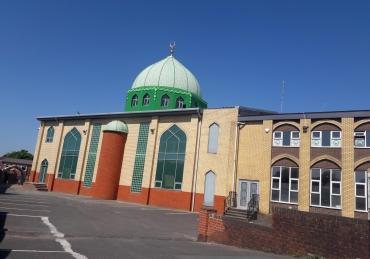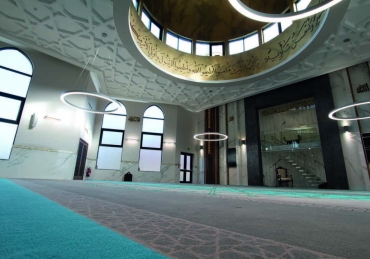Masjids limiting congregational Ṣalāh due to Coronavirus (Update)
Question
Dear respected and honourable Muftis, our Masjids in Preston have this evening (19 March) collectively decided to severely limit the normal congregational Ṣalāh in the Masjid, although the Imam and a few young healthy people will still continue to perform Ṣalāh in the Masjid, so the Masjid will remain open for a select few individuals. This is in light of the strong advice of the health authorities, the closure of schools and the increased risk of the pandemic spreading to North England.
In light of this, what should we do in Preston? Should we abide by this collective decision made by the scholars and Masjids and perform Ṣalāh at home, and if so, should we perform Ẓuhr Ṣalāh, and if we wish to perform Jumuʿah Ṣalāh, what is the minimum number of people? May Allah Almighty bless you for all your endeavours and accept your efforts.
(For other Q&As & articles regarding Coronavirus, click here)
(Important note: Refer to this link for the agreed position of senior UK scholars regarding this issue)
بسم الله الرحمن الرحیم
Answer
As the Government is now strongly urging that large congregations are suspended, because it exacerbates the spread of Coronavirus, if the Masjids of Preston have collectively taken this decision, it should be honoured and respected.
Earlier in the week, the advice was for Masjids to remain open. This was taking into account many factors including the government’s position on keeping schools open and our engagement with our local Public Health officials, who agreed that at this stage managing the risks via precautionary measures was a reasonable and proportionate response. However, over the past 48 hours, the Government has announced the closure of schools, and the regional Public Health officials have strongly urged for large gatherings to be suspended due to the sudden acceleration in the number of coronavirus cases. We have also discussed the issue with scholars from countries that have been severely affected.
Therefore, if the Masjids of Preston have collectively decided to severely limit congregational Ṣalāh, this decision should be honoured and respected by the community. Likewise, it is strongly recommended that Masjids in their respective areas collectively consult with their local scholars and health professionals and decide accordingly taking into account their local circumstances.
In relation to the Friday prayers, the replacement for it is Ẓuhr Ṣalāh. If Jumuʿah Ṣalāh is performed, the minimum number of people for its validity is four adult males.
Note: This answer dated 25 Rajab 1441 / Friday 20 March 2020 supersedes earlier answers on this issue.
Allah know best
Yusuf Shabbir
25 Rajab 1441 / 20 March 2020
Approved by: Mufti Shabbir Ahmad and Mufti Muhammad Tahir
References
عن ابن سيرين قال ابن عباس لمؤذنه في يوم مطير: إذا قلت أشهد أن محمدا رسول الله، فلا تقل حي على الصلاة، قل: صلوا في بيوتكم، فكأن الناس استنكروا، قال: فعله من هو خير مني، إن الجمعة عزمة وإني كرهت أن أحرجكم فتمشون في الطين والدحض، رواه البخاري (٩٠١). وعن أبي هريرة مرفوعا: لا يوردن ممرض على مصح، رواه البخاري (٥٧٧١). وعن ابن عباس مرفوعا: لا ضرر ولا ضرار، رواه ابن ماجه (٢٣٤٠) بسند فيه جابر الجعفي، ورواه الحاكم (٢٣٤٥) من حديث أبي سعيد الخدري وصححه على شرط مسلم وأقره الذهبي. وعن ابن عمر مرفوعا: من أكل من هذه الشجرة – يعني الثوم – فلا يقربن مسجدنا، رواه البخاري (٨٥٣). وعن أبي موسى مرفوعا: إذا مرض العبد أو سافر، كتب له مثل ما كان يعمل مقيما صحيحا، رواه البخاري (٢٩٩٦). وعن ابن عباس مرفوعا: من سمع المنادي فلم يمنعه من اتباعه عذر، قالوا: وما العذر؟، قال: خوف أو مرض، لم تقبل منه الصلاة التي صلى، رواه أبو داود (٥٥١)۔
وقال ابن مفلح في الفروع (٣/٦١): باب العذر في ترك الجمعة والجماعة، يعذر فيهما بمرض، وبخوف حدوثه، انتهى. وتبعه المرداوي في الإنصاف (٤/٤٦٤). وقال ابن نجيم في الأشباه والنظائر (ص ٧٦): إذا تعارض مفسدتان روعي أعظمهما ضررا بارتكاب أخفهما. وقال (ص ٧٥): لو كان أحدهما أعظم ضررا من الآخر، فإن الأشد يزال بالأخف، انتهى۔
وقال محمد في الأصل (١/٣٠٦): قلت: أرأيت رجلا مريضا لا يستطيع أن يشهد الجمعة فصلى الظهر في بيته أيصليها بأذان وإقامة؟ قال: إن فعل فحسن وإن لم يفعل أجزأه، انتهى. وقال الحصكفي في الدر المختار (٢/١٥٧): (وكذا أهل مصر فاتتهم الجمعة) فإنهم يصلون الظهر بغير أذان ولا إقامة ولا جماعة، انتهى. قال ابن عابدين: الظاهر أن الكراهة هنا تنزيهية لعدم التقليل والمعارضة المذكورين، ويؤيده ما في القهستاني عن المضمرات: يصلون وحدانا استحبابا. قوله (بغير أذان ولا إقامة) قال في الولوالجية: ولا يصلي يوم الجمعة جماعة بمصر ولا يؤذن ولا يقيم في سجن وغيره لصلاة الظهر اهـ قال في النهر: وهذا أولى مما في السراج معزيا إلى جمع التفاريق من أن الأذان والإقامة غير مكروهين، انتهى. وقال السرخسي في المبسوط (٢/٣٦): ولو جوزنا للمعذور إقامة الظهر بالجماعة في المصر، ربما يقتدي بهم غير المعذور، وفيه تقليل الناس في الجامع، انتهى. وهذا التعليل يقتضي جواز الجماعة في البيت إذا أمن من الشيئين. وقال السمرقندي في التحفة (١/١٦٢): وأما الشرائط التي ليست من صفات المصلي فستة أيضا، خمسة ذكرها في ظاهر الرواية: وهي المصر الجامع والسلطان والجماعة والخطبة والوقت، والسادس ذكره في نوادر الصلاة وهو أن يكون أداء الجمعة بطريق الاشتهار، حتى إن أميرا لو جمع جنوده في الحصن وأغلق الأبواب وصلى بهم الجمعة فإنه لا يجزئهم، وإن فتح باب الحصن وأذن للعامة فيه بالدخول جاز، انتهى۔







